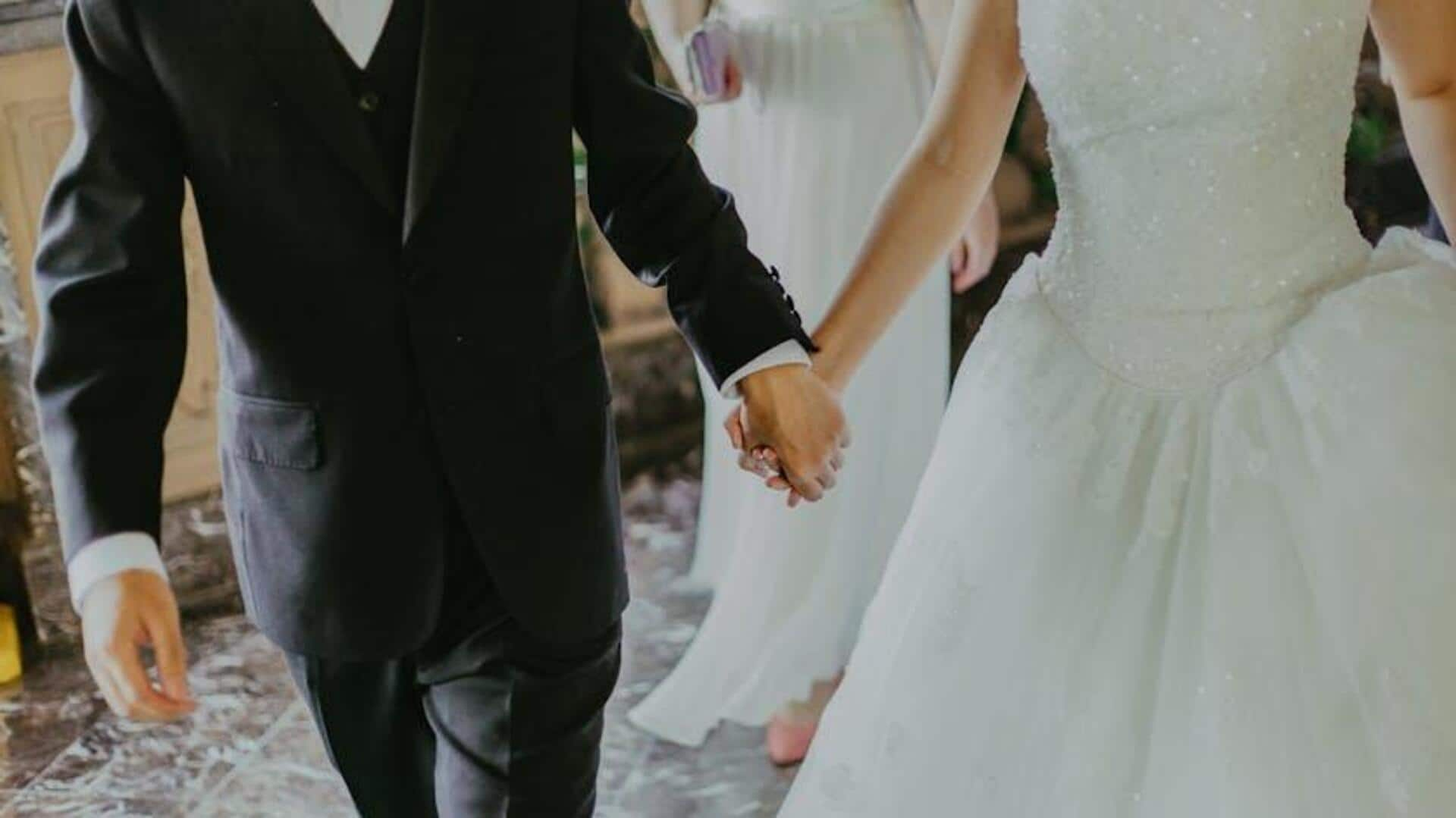
Delve into Andorra's timeless wedding traditions
What's the story
Andorra is a small principality located between France and Spain, but it has a rich cultural heritage. The wedding customs of Andorra are a fascinating mix of traditions that have stood the test of time. These customs mirror the uniqueness of Andorra and provide an insight into its cultural values. From traditional attire to ceremonial practices, here's a look at how Andorrans celebrate one of life's biggest milestones.
Dress code
Traditional attire and symbolism
Traditional attire is an important part of Andorran weddings. The brides usually wear dresses with beautiful lacework, which symbolizes purity and elegance. The grooms usually wear the suit that reflects their family's heritage. The colors of the attire also have a significance, as they symbolize different virtues like loyalty, prosperity, etc. The emphasis on clothes shows how much importance is given to tradition and symbolism.
Rituals
Unique wedding ceremonies
Andorran wedding ceremonies are characterized by uniqueness of their rituals, which have been inherited from generations. One such ritual is the exchange of handmade gifts between families to symbolize unity and goodwill. Another common practice is the lighting of candles during the ceremony to represent gar forts hope for a bright future together. These rituals emphasize on the community's focus on family bonds and shared experiences.
Cuisine
Culinary delights at celebrations
Food has always been an essential part of any celebration in Andorra, including weddings. Traditional dishes made from locally sourced ingredients are served during wedding feasts, highlighting the regional flavors and culinary prowess. Pastries filled with nuts or fruits are an inseparable part of the dessert course, which reflects local tastes and preferences. The emphasis on food also highlights how it brings people together during joyous occasions.
Entertainment
Music and dance traditions
Music and dance are given special importance in Andorran weddings, as entertainment to keep guests happy and also, to pay homage to cultural traditions. Folk music, played with flutes or guitars, adds an upbeat note to celebrations, while traditional dances of couples liven up the festivities. This highlights how music is not just entertainment but also a way to preserve culture in communities over generations.